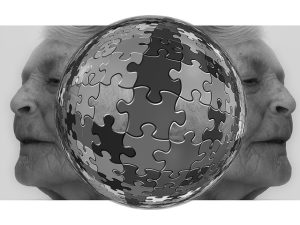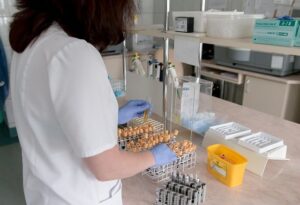Researchers transplant fresh brain cells to replace diseased and aging brain cells
- What are the WHO recommendations for Japanese encephalitis vaccines?
- Individuals Carrying Two APOE4 Copies Likely to Develop Alzheimer’s Disease Symptoms
- What Is The Role of Lactic Acid in Tumor Growth and Therapy Resistance?
- The Enigma of Beethoven’s Deafness: Unveiling the Role of Lead Poisoning
- World First Autologous Regenerated Islet Transplantation Successful
- FDA Approved Opdualag: The First Immunotherapy Targeting LAG-3
Researchers transplant fresh brain cells to replace diseased and aging brain cells
- AstraZeneca Admits for the First Time that its COVID Vaccine Has Blood Clot Side Effects
- Was COVID virus leaked from the Chinese WIV lab?
- HIV Cure Research: New Study Links Viral DNA Levels to Spontaneous Control
- FDA has mandated a top-level black box warning for all marketed CAR-T therapies
- Can people with high blood pressure eat peanuts?
- What is the difference between dopamine and dobutamine?
- How long can the patient live after heart stent surgery?
Researchers transplant fresh brain cells to replace diseased and aging brain cells.
The researchers transplanted cells capable of forming specialized brain support cells into the brains of mice and found that they could not only outcompete and replace unhealthy cells, but also replace senescent cells.
These findings open the door to the development of effective treatments for a range of diseases including multiple sclerosis, amyotrophic lateral sclerosis, Alzheimer’s disease, autism and schizophrenia.

Glial cells are a general term for nerve cell (neuron) support system cells. Progenitor cells are descendants of stem cells that can differentiate into specific cell types.
In the case of glial cells, human glial progenitor cells (hGPCs) can differentiate into subtypes, including astrocytes and oligodendrocytes, specialized for specific functions.
Astrocytes make up the majority of cells in the central nervous system, provide support and protection for neurons, transport nutrients and remove waste products.
Oligodendrocytes lay down and maintain a lipid-rich insulating sheath called myelin around some axons (the parts of neurons that connect to one another and transmit nerve impulses).
Dysregulation of astrocytes and oligodendrocytes has been implicated in a variety of neurodegenerative and neuropsychiatric disorders. Given hGPCs’ ability to generate new astrocytes and oligodendrocytes, researchers at the University of Copenhagen in Denmark investigated how transplanting healthy hGPCs could help restore brain function.
Huntington’s disease is a rare, fatal genetic disorder that causes progressive failure of neurons, and researchers have previously shown that transplanting healthy human glial cells into a mouse model of Huntington’s disease can replace unhealthy mouse glial cells.
In the current study, they wanted to see if healthy human cells could replace diseased human cells. So they introduced healthy hGPCs into “chimeric” mice injected with stem cells from Huntington’s disease patients.
The researchers found that the healthy cells overtook and completely replaced the diseased cells.
“When we transplanted healthy human cells into ‘humanized’ mice expressing glia with the Huntington mutation, the healthy glial cells overtook and replaced the diseased glia, virtually eliminating the diseased glia population,” said Steven Goldman, corresponding author of the study.
Interestingly, the researchers found that when young donor hGPCs were introduced into the brains of humanized mice, they outcompeted and replaced healthy, non-diseased but senescent cells.
Their finding that healthy hGPCs can replace both diseased and senescent cells is significant and highlights the potential for developing treatments that can be used in a variety of conditions, the researchers say.
“What this tells us is that it’s not just a matter of healthy cells replacing diseased cells in Huntington’s disease,” Goldman said. “It’s much broader in terms of potential use because we can go to various disease targets that have populations of aged or diseased glia.” In terms of possible use, the advantages are significant because there are a variety of glial cell diseases. “
Glial cells are critical to the development of certain neuropathologies.
The neurodegenerative diseases amyotrophic lateral sclerosis (ALS) (also known as Lou Gehrig’s disease), epilepsy, multiple sclerosis (MS), Parkinson’s disease, and Alzheimer’s disease have all been linked to glial cell dysfunction.
The same goes for neuropsychiatric disorders, autism spectrum disorder (ASD), bipolar disorder, and schizophrenia.
If we can replace diseased and aged cells, then we should be able to restore normal function in these degenerative diseases, as we have seen in experimental models of Huntington’s disease.
But this is basically a proof of principle, and the researchers think the same approach could be used for a number of other diseases as well. This is true in amyotrophic lateral sclerosis, some frontotemporal dementias, and even some hereditary forms of schizophrenia, as well as myelin disorders and age-related white matter loss.
The researchers propose a clinical trial to examine the efficacy of hGPC transplantation in Huntington’s disease and two other diseases, primary progressive multiple sclerosis (PPMS) and Pelizer-Merzbach disease (PMD).
Most MS patients relapse after remission, while about 15 percent of MS patients continue to get worse without periods of remission.
PMD is a rare, progressive genetic disorder that damages oligodendrocytes, leading to a decline in coordination, movement, and cognitive function.
The researchers hope to start human clinical trials within the next few years. “Things are going pretty well,” Goldman said. “We still need to be absolutely sure about the long-term safety of cell transplantation.
But we expect to have those data in about a year and a half. By then, we hope to be able to get approval to transplant patients, so I hope we can start trials of this approach within two years.”
The research was published in the journal Nature Biotechnology.
Researchers transplant fresh brain cells to replace diseased and aging brain cells
(source:internet, reference only)
Disclaimer of medicaltrend.org
Important Note: The information provided is for informational purposes only and should not be considered as medical advice.



